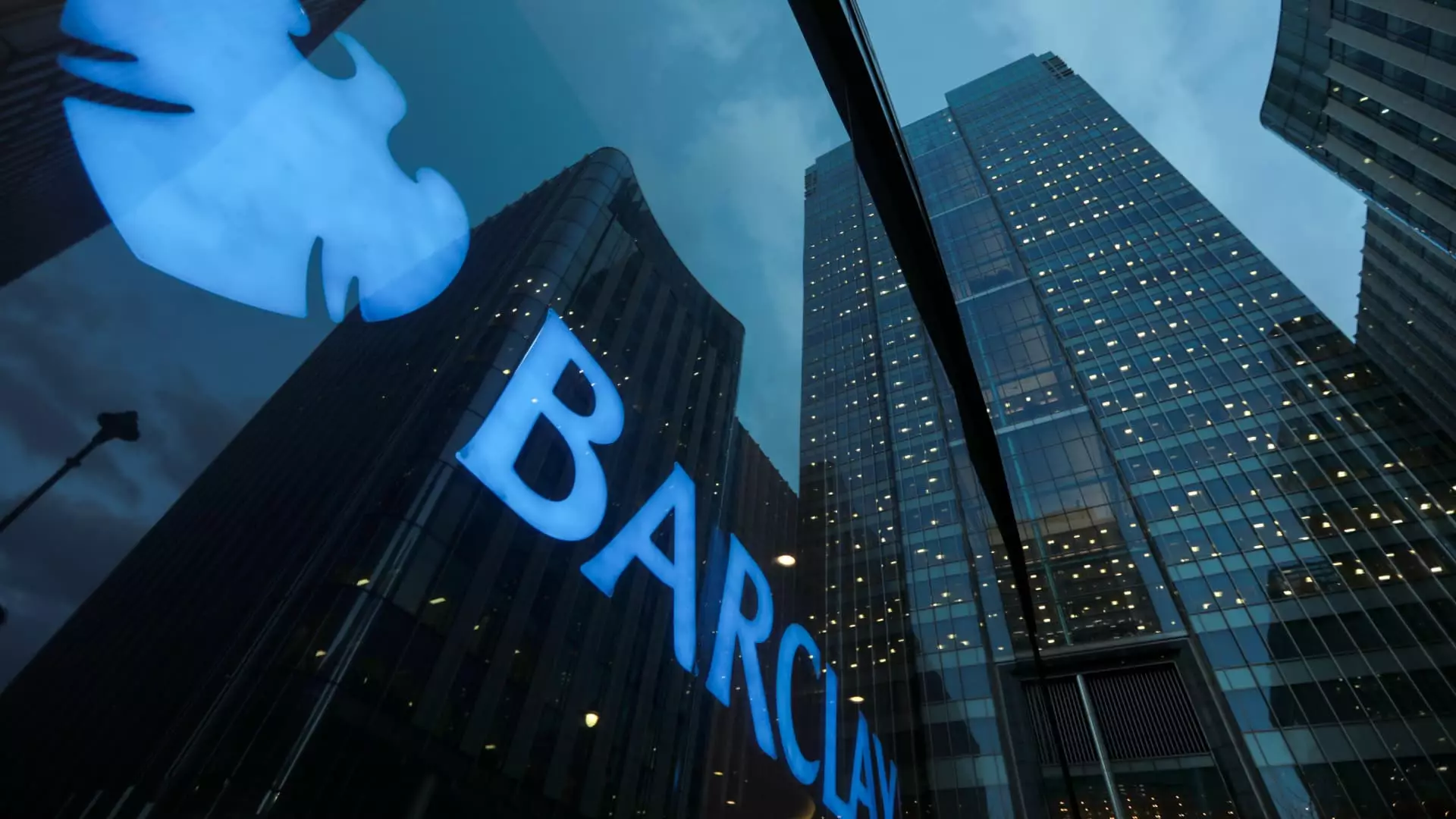In an impressive display of financial resilience, Barclays has reported a net profit of £1.6 billion (approximately $2 billion) for the third quarter of 2023, surpassing analyst expectations and reflecting a remarkable 23% increase from the same quarter in 2022. This outcome is indicative of the bank’s effective strategic maneuvers as it shifts focus in response to evolving market dynamics. Market analysts had anticipated a more modest profit of £1.17 billion, showcasing Barclays’ ability to outpace forecasts within a challenging economic landscape.
The positive surprise is further accentuated by the bank’s revenue, which reached £6.5 billion. This figure exceeds analysts’ predictions of £6.39 billion, suggesting that the bank is not only achieving growth in profit but also excelling in revenue generation amid an economically volatile environment. This dual achievement demonstrates Barclays’ commitment to improving its financial health while navigating market fluctuations.
Central to Barclays’ success is the strategic overhaul enacted earlier this year, which was designed specifically to stabilize long-term financial performance while enhancing shareholder returns. This strategic pivot places a new emphasis on domestic lending and managing costs, particularly within the bank’s traditionally volatile investment banking sector. Following the acquisition of Tesco Bank, a significant player in U.K. retail banking, Barclays has signaled its intent to strengthen its presence in this crucial market.
The approach seems fruitful as evidenced by the increase in net interest income from the U.K. retail banking segment, which rose by 4%. In contrast, Barclays had previously experienced a downturn in net profit during the second quarter, driven by lower income streams from its consumer and corporate banking divisions. However, third-quarter results indicate a more balanced performance, with corporate bank income climbing by 1%, suggesting a stabilizing trend. As the bank raises its forecast for U.K. retail net interest income from £6.3 billion to £6.5 billion, it becomes clear that Barclays is positioning itself favorably for the future.
CEO C. S. Venkatakrishnan expressed optimism regarding Barclays’ trajectory during an interview with CNBC. The results, he noted, reflect substantial advancement towards meeting the targets established earlier in the year. With focused guidance on upward net interest income, Barclays is demonstrating consistency in financial accomplishments over the last two quarters. Alongside the positive projections, the bank’s well-managed costs underscore its commitment to maintaining strong operational discipline.
As a proactive measure against potential declines in net interest margins due to falling interest rates, Barclays has emphasized its strategic tools, particularly its structural hedge for smoothing income fluctuations caused by interest rates. This risk management approach positions the bank to remain resilient amidst external pressures, providing stakeholders with confidence in its financial stewardship.
In the broader banking landscape, Barclays’ performance is reflective of an industry-wide trend as banks globally seek to restructure operations and cut costs in the face of an uncertain economic environment. Competitors such as HSBC have announced significant restructuring plans, signaling a shift in focus across the sector.
Despite the challenges posed by shifting interest rates, Barclays’ disciplined approach has led to a surge in its share price, which has skyrocketed by 55% year-to-date, following a dip earlier in 2023. This strong market performance confirms that investors are increasingly optimistic about Barclays’ strategic direction and recovery prospects.
As Barclays moves forward, it is well-situated for further growth and stability, particularly with its anticipated net interest income of over £11 billion for the full year of 2024. The combination of a refined strategy, effective cost management, and a robust financial structure represents a roadmap for sustained profitability, positioning Barclays as a key player in the evolving banking landscape.



Leave a Reply